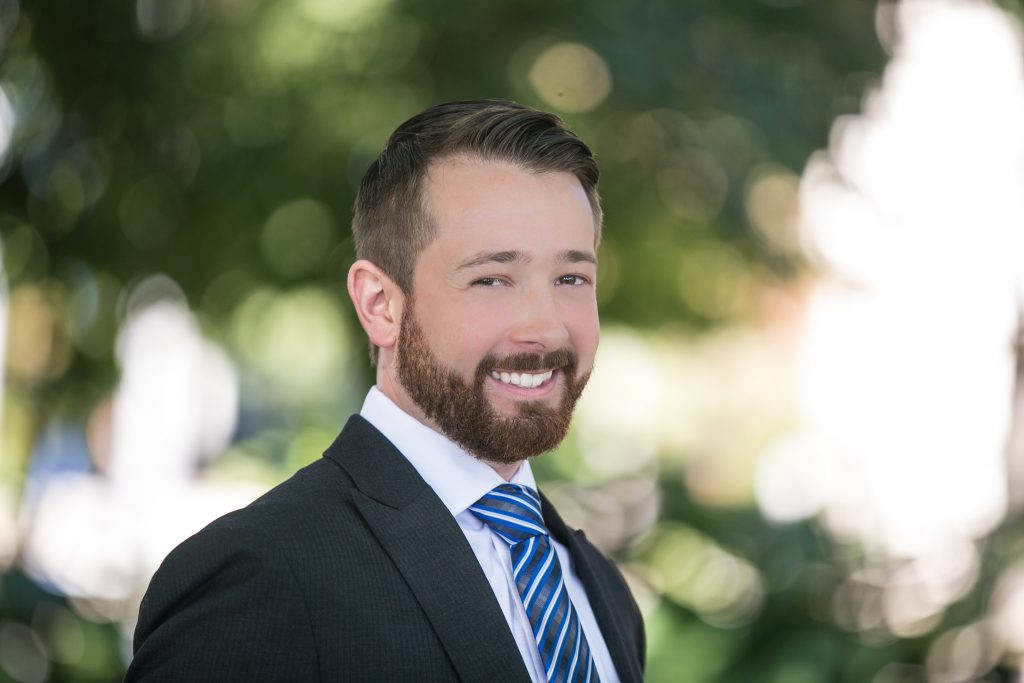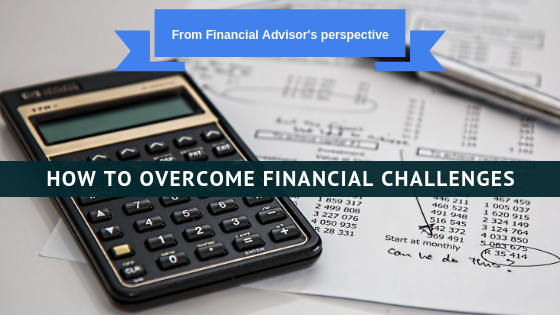No matter who you are; a busy business owner, recently married couple, or a student who just landed your first dream job, you may come up with some challenging questions in your finance such as:
- Should I buy RRSP now or what should I invest in RRSP?
- Should I buy RESP for my one year old?
- How am I going to safeguard my portfolio and receive decent growth?
Today we are luckily having Mr. John Lysack to help us clarify some of those challenging questions.
Something about Mr.John Lysack : He impacts his clients by providing them with information about their current financials allowing them to make an informed decision on how to positively impact their financial future. His focuses on long-term planning for businesses and owners, retirement and transfer wealth (estate planning). Some of his planning solutions are investments, life insurance and income replacement plans. Many of John’s clients first turn to him for advice because they have general questions about investments or insurance. John’s through process educates the clients about their options allowing them to be in full control of their future.

Alex: John, thanks for spending time with me today. Would it be possible that you can briefly introduce yourself and what’s your focus?
John: I am originally from a small town in Manitoba and moved to Toronto to pursue my passion in financial planning. By the time I was 18 years old, my parents declared bankruptcy collectively three times. My dad was a business owner and got injured outside of work. This resulted in him unable to contribute to the business and we were never able to recover. It resulted in me taking a strong interest in the Financial Planning profession to help others.
My best work is done with people who are often too busy and have responsibilities ranging from families, employees, or business partners. Life gets busy and sometimes you need someone to hold you accountable, like a coach. My personal touch to my clients helps them keep on top of their financial goals relating to investments, insurance, and planning related to retirement and business.
Alex: Great. Let me start one simple question. For many young people under 30, they can access a lot of free financial advice from everywhere. Do they need to have a customized financial plan? I know nowadays, young people have many priorities, but often under a limited budget as well. Buy a house now or never? Pay down personal debt or invest? What’s your advice?
John: Wow, loaded question. Yes, there is free information everywhere and it is overwhelming. Financial literacy in Canada is currently at a grade five level and only recently Ontario is implementing personal finance courses. Your situation is so unique, it would be as equivalent as taking a grade 12 algebra equation to a grade 5 student and asking for help.
Everyone needs a customized financial plan. A financial plan reviews your goals, emotions, and responsibilities. In my career, I have never given the same advice twice. Taking advice from friends, family, and the internet doesn’t work because there are too many factors to be considered. For example, you don’t take medical advice from friends, family, or the internet. The internet often tells you have 24 or less months to live. Your doctor takes your personal situation and other factors to help you reach an accurate diagnosis. The same care for your health should be given to your financial plan.
A customized financial plan will help you answer the follow-up questions. Today, with debt being a big part of my conversation, the first thing we do is put the clients on a debt repayment plan. This will give a peace of mind that your debt will be paid off in x amount of years, as a result, relieving stress and anxiety. Only then we can focus on goals with confidence and positivity.
Alex: That’s quite helpful. Insurance is a critical tool that is being used in achieving financial goals in many cases. Can you share information on several popular insurance products and their respective benefits?
John: Each one has their own great features and solutions. All products are highly customizable to meet a client’s budget and needs. My recommendation is to start off by getting an assessment done to get a better understanding of specific needs.
Insurance is a key part of a financial plan. It provides you with certainty that in the worse case scenario, everything is going to be okay. I had one client who was laid off express to me how insurance has given him a peace of mind. If he was unable to work due to an accident, illness or death, him and his family were going to be okay.
There are two parts to an insurance plan. Life insurance and income replacement.
Life insurance is simple, when you pass away, insurance pays your beneficiaries, tax free. Life insurance can be expanded into two sections, temporary or permanent insurance.
Temporary insurance is great for short- and long-term responsibilities. Replacing income, paying off debt and mortgage. If you have a child under the age of 25, you’ll want to make sure to have 25 times your after-tax income to cover expenses for your family. You also need to have insurance to cover your mortgage. For business owners, term life insurance can be a great solution to funding a Buy-Sell agreement you have with your partners. Term insurance is great for needs up until age 65 and expires at age 85.
Permanent insurance has a cash or saving component. As you pay into it, you build up cash or saving. This concept is similar to a house. The longer you hold onto your house, the more cash you have access to. The cash value allows you to receive some great benefits, you can cancel the policy for cash or to use the death benefit to pay for funeral expenses, taxes or to replace pension income.
Income replacement insurance is used to replace income in the event of an accident or sickness. You need this no matter what age you are. If you could imagine not being able to work for two or more years, how would you survive? Perhaps move into your parents or use your retirement money? This can significantly push your financial plan back by a decade. Income replacement insurance protects your ability to earn an income when you physically cannot.
Disability insurance provides you with a monthly payment in the event you cannot do your job. It doesn’t matter if it is an accident or illness. The most common benefit I sell is payments until age 65 or when you are healthy. This money is used to cover your overall monthly fixed and discretionary expenses including saving for retirement.
Critical illness provides you with a lump sum payment if you receive a heart attack, stroke, cancer or 23 other illnesses and conditions. This money is generally used to help pay your spouse’s income and additional medical expenses or treatments. Could you imagine going to a pure organic diet after becoming sick while you are not making an income? Critical illness insurance helps cover those additional costs.
Alex: Wow, that’s a lot of information. It is always a great idea to check with advisors like you. I know you have some tips for business owners as well. Can you share with us on the recent planning cases?
John: Absolutely. Most recent case was involving two business owners, one male 45 and the other female 30 years of age. My team and I met with them to discuss their group benefits and pension plans for their employees. During our discovery session, we found some concerns regarding their current set-up.
They had a buy-sell agreement in place but had no funding. In the event of an accident, illness or death, they would need to find another investor or get a loan from the bank to buy the other person out. As you could imagine, the loss of a business owner would mean a loss of revenue and profits devaluating the business. This means you would be selling your business at a lower value. This is unfair to everyone involved.
We used insurance owned by the company to receive a cash payment in the event of an accident illness or death. The corporation would then pay the business owner cash for their share of the business. The company would also receive insurance money to pay for 2 years of wages for an employee to cover the responsibilities of business owners and cover loss of profits. In the event of an accident, illness, or death, the company would not lose value and have time to adjust to the new normal of a business.
We also noticed what would happen if the 45-year-old male wanted to retire at age 65, would the company have enough cash to pay for this transaction? We used the cash value feature of the insurance as a savings plan for the company. It grows tax deferred and after 20 years the policy can be cancelled, and the money will be used to help pay for the retiring employee.
This all started with an employee benefit. There are lots of factors that business owners are not aware of. Having funding for your business is essential to surviving these types of situations.

Alex: You are right. There are many factors to be considered, particularly for business owners. On the other hand, I know you are also involved helping clients in estate planning as well. Can you tell us more about it?
John: Estate planning is such a misunderstood term. Many people believe if you have a Will, you have an estate plan.
A Will is more of a letter of direction from you to courts. Your final wishes. Some lawyers do a great job in reviewing your situation and making recommendations to clients that make my job easier, such as the use of trusts. Others miss important details. Lawyers know the law and have access to trusts, but they do not have solutions or licensed to give you advice on certain issues such as tax concerns, investments, or insurance.
Estate plan is the art of dying neatly. Imagine you on one side and your family on the other. In-between you is a river, (AKA CRA). Without a proper estate plan, your family would have to swim through the river. The family will be tired resulting in family feuds and loss of money going down the river to the CRA. A properly built estate plan is like building a bridge over the river.
There are two parts to an estate plan. One is of course taxes. One of the first questions I ask is how much would you like to pay in taxes? Often people respond with zero. We work with great accountants like you, Alex, in finding out the estimated tax bill and begin drawing up an “Estate Plan” to achieve this goal. We often use tools such as estates, trusts and preferred charities to reach this goal.
An estate plan is often needed if there is a family cottage, business, or other high-priced assets. With both situations some people do not want to participate in the cottage or business and would prefer cash. This could cause stress on the surviving members in trying to take out a loan or need to sell the business or cottage to pay the one family member. Insurance is a great way to balance out the estate with some additional cash to meet gift requirements for all beneficiaries.
Alex: John, thanks again for your time. I look forward to the next meeting with you.
You can reach John Lysack at his mobile: 647-403-4233 or john.lysack@f55f.com.

Recent Comments